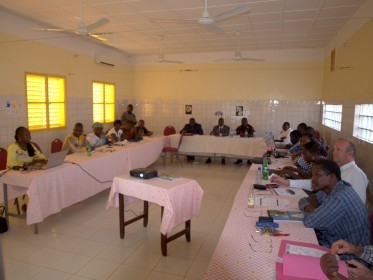- c/o Winds of Hope Foundation, Ch. de Montolivet 19, 1006 Lausanne, Suisse
- +41 (0)21 320 77 22
- info@nonoma.org
« It’s easier to build solid children than to repair broken adults. » A.Douglas
Detection and Raising Awareness
Once the disease has reached the stage of necrosis, faces can only be the repaired at the cost of long, painful and expensive surgical operations, and these can only benefit a very limited number of victims.
Prevention is the most effective way to fight noma – before it starts, or at the very first signs of the disease. It also makes it possible to mobilize the entire population of a country with a strict minimum of resources.
Establish simple, multipurpose prevention programs that are useful and accessible to the greatest number of people, and aimed at :
- providing the population of remote and disadvantaged areas with basic education on hygiene and initial treatment,
- giving nutritional advice to mothers,
- preventing shortcomings that may lead to the emergence of noma,
- learning to recognize the early symptoms of the disease,
- providing first aid capable of stopping the disease,
- combating the deep-seated belief that noma is a curse that cannot be cured, and,
- training local and community health personnel.


Having in each village a person capable of detecting the very early symptoms of noma means that a whole village is protected not only against noma, but also against many other infections that are due to lack of hygiene and malnutrition. So a health worker is trained in each village who knows how to prevent and detect noma. He or she educates and trains the community and any already existing health personnel in the prevention and early detection of noma as well as in primary health care.
Raising the awareness of people living in extreme poverty opens the doors for village families to better hygiene and a balanced diet. These basic concepts are very effective not only against noma but also against infectious diseases. Widespread support should therefore be given to WHO’s national programs and those of the humanitarian organizations that are working in this direction.
Endemic dysfunctions
Noma is a serious disease the cure for which extends beyond the medical world, since its determinants are essentially socio-economic (extreme poverty leading to severe malnutrition).
The discussion has to be shifted from the medical field to the political field. It is important to establish close tripartite collaboration between local civil society stakeholders, NGOs active in the field and government ministries, so as to cause them to take urgent measures to reduce the serious dysfunctions in their countries (lack of access to food, drinking water, health care and education).
Any initiative aimed at improving these abuses of the rights of the most disadvantaged populations is an effective preventive action in the fight against noma.


